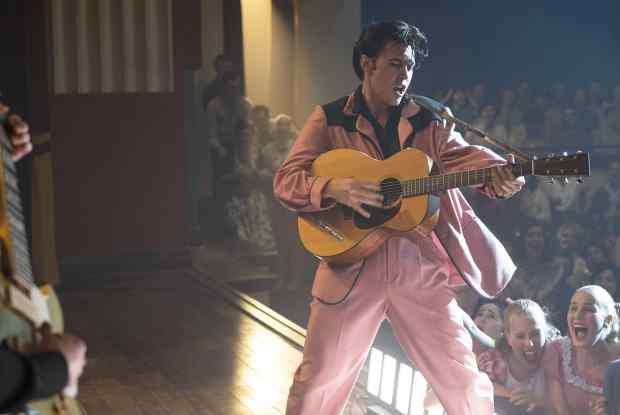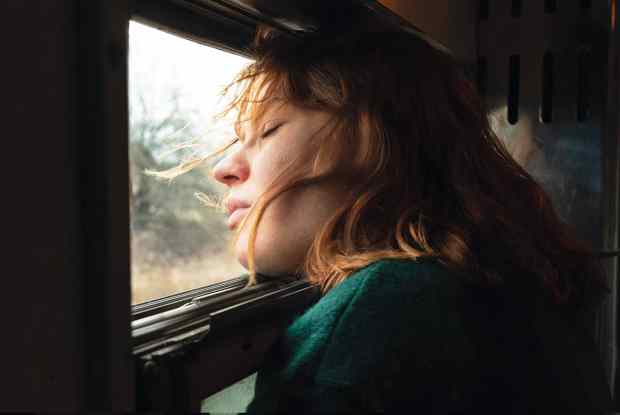I should warn you that if you go see The Double it is one of those films that will trouble you long after the event. It will trouble you at breakfast and it will trouble you at lunch and it will trouble you as you go about your business, whatever that might be. Yes, a pain — haven’t I got enough troubles of my own? Haven’t I got enough to think about as it is? — but it is so singular and compelling, there is every chance it is worth it.
It’s directed by Richard Ayoade, his second feature after the terrific Submarine, who is known to TV viewers as Moss from The IT Crowd as well as being a regular guest on those comedy panel games that have been told to include more women, like we don’t have better things to do. Who knew he’d turn out to be such an interesting and original director? Who knew he had such panache? You? Thought not.
However, unlike Submarine, which was a coming-of-age comedy, this is dark. Exceedingly dark. It is based on Dostoyevsky’s novella of the same name, and stars Jesse Eisenberg as Simon James, a shrinking figure in a too-big suit whose loneliness is palpable, and who is barely noticed, timid, constantly trampled upon. (If Dostoyevsky hadn’t wanted him, I think Gogol would have snapped him up.) Ayoade sets up his character in the very first scene, when Simon is asked to get up from his train seat and obliges, despite the fact that there is no one else in the carriage. Throughout, the time and location are ambiguous. It could be the past, it could be the future, it could be the present, but set in a different, nightmarish, Stygian reality. The colours are black, grey and brown. There is no natural daylight, ever. The hand-held camera jitters then pulls in so claustrophobically close you can see the actors’ pores. (They have them! Who knew?) The soundtrack is cello, the dark end of the piano, high winds, the rumble of oncoming trains. It may be the joylessless of depression, externalised. It may be we are inside Simon’s headspace, understanding what he feels like. This is showing, not telling, which, in an ideal world, every film would do, but doesn’t.
So this is where Simon is at when, one day, he arrives at work — an Orwellian place of stifling tedium and repetition — and discovers he has a new colleague, James Simon (also played by Eisenberg), who is his exact physical double. James is everything Simon has ever longed to be: confident, popular, charismatic, a hit with the ladies. He impresses his bosses without even having any understanding of the work. No one comments on the resemblance or even notices, aside from Simon. The two become friends at first, and Simon cheers up a little, but the relationship sours when James makes a play for Hannah (Mia Wasikowska), with whom Simon is in love, even though, typically, she has scarcely registered he’s alive.
Little is directly explained. Does James exist, or is he a projection of Simon’s unhappy psyche? I can only say I listened carefully whenever they walked anywhere together and only heard one set of footsteps. So is it about madness and breakdown? Possibly, which sounds bleak, and it is bleak, but this is grippingly bleak, as well as grippingly surreal. Usually, I don’t want too much surreal, as I like my real to be real, but, having created this world, Ayoade populates it in a way that is bizarre, but feels true, and is enjoyable, rather than a hard watch. There’s Simon’s odd mother, who treats him with contempt, and the woman she lives with, who keeps looking at Simon and saying: ‘He’s not right.’ There’s the peculiar café tended by a bad-tempered waitress, the televisions which only seem to show terrible sci-fi, plus deliciously unsettling cameos provided by Sally Hawkins, Chris O’Dowd, James Fox and Chris Morris, who is hilariously bonkers.
Although it seems to run slightly out of steam by the end, and does not pay emotional dividends — the finish will depend on your interpretation, and how satisfying you find that — it will stay in the mind. I am still worrying away at it, like a bit of food caught in a tooth. Is it saying that unless you settle for who you are, that way lunacy lies? I don’t know. I can only say it is so singularly compelling, there is every chance it is worth it.
Got something to add? Join the discussion and comment below.
Get 10 issues for just $10
Subscribe to The Spectator Australia today for the next 10 magazine issues, plus full online access, for just $10.
You might disagree with half of it, but you’ll enjoy reading all of it. Try your first month for free, then just $2 a week for the remainder of your first year.













Comments
Don't miss out
Join the conversation with other Spectator Australia readers. Subscribe to leave a comment.
SUBSCRIBEAlready a subscriber? Log in